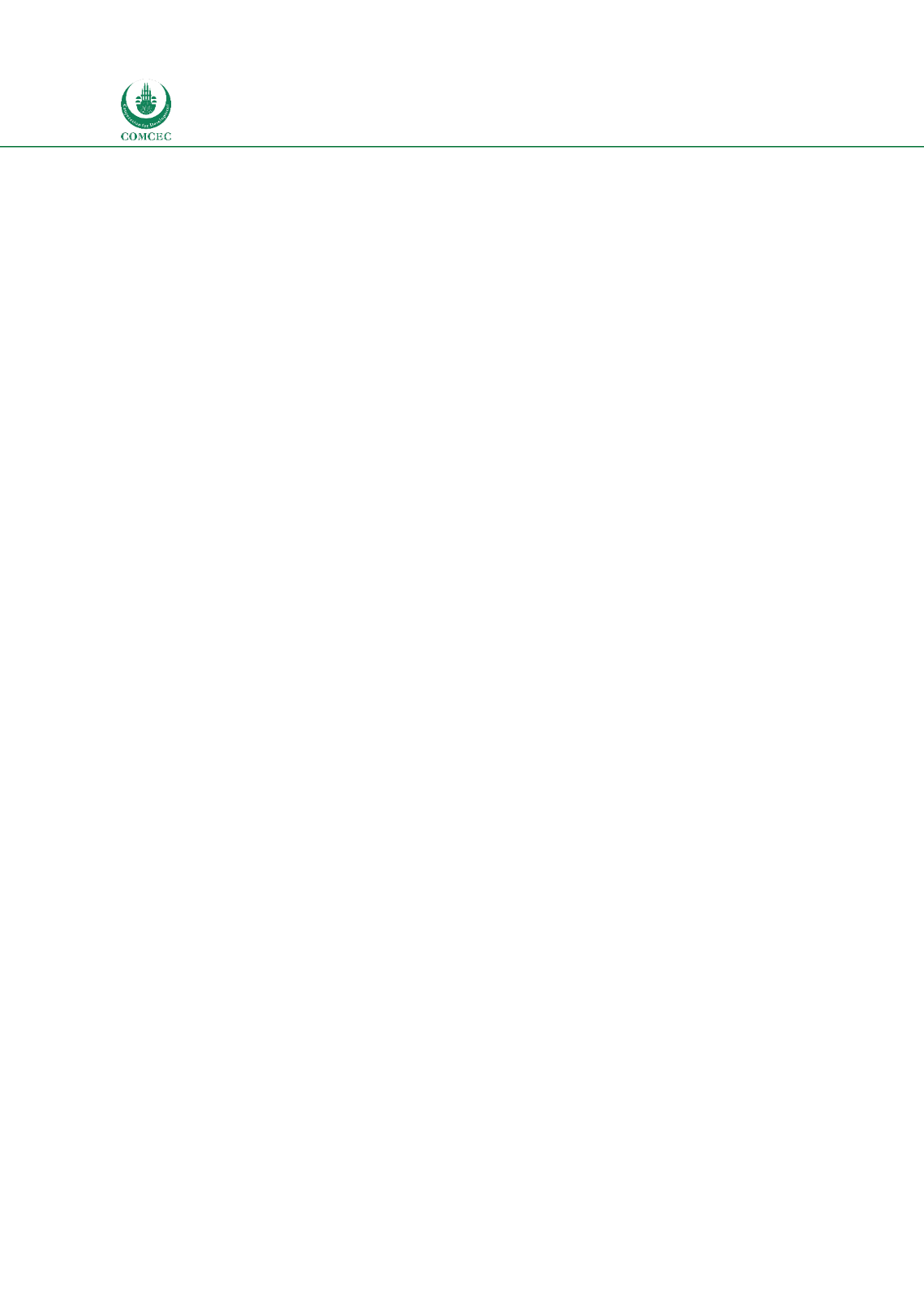

National and Global Islamic Financial Architecture:
Problems and Possible Solutions for the OIC Member Countries
98
determination for Islamic financial institutions in Nigeria. It is in realization of this liquidity
management challenge that the CBN in June 2015 reduced the Liquidity Ratio (LR) of the
Islamic financial institutions to 10% from the statutory 30%.
The CBN can use the CBN Non-Interest Note (CNIN) to undertake its function as a lender of last
resort in a
Shariah
compliant manner. This scheme starts by CBN determining the amount and
tenor of the first loan and then announcing the details of its offer to borrow to the participating
Islamic financial institutions. At any point in time after the maturity of the first loan (within 12
months after maturity), the Islamic financial institution is entitled to a free interest loan, the
amount of which will be a multiple of the amount involved in the first loan to the extent needed
and the maturity will be half the maturity period of the first loan.
4.5.5.
Information Infrastructure and Transparency
Islamic Accounting and Auditing Framework/ Transparency and Disclosure
The guidelines for the regulation of Islamic financial institutions require the institutions to
comply with the Generally Accepted Accounting Principles (GAAP) codified in local standards
and the International Financial Reporting Standards (IFRS)/International Accounting
Standards (IAS) and that, for those transactions, products and activities not covered by these
standards, the relevant provisions of the financial accounting and auditing standards issued by
the AAOIFI should apply.
The regulatory bodies in the financial sector have, at various times, issued revised codes of
corporate governance that emphasize the need for transparency and complete disclosure by
financial institutions. The CBN issued the revised codes in 2014, SEC in 2011, while the
NAICOM issued the corporate governance codes in 2009. The codes encouraged financial
institutions to make robust disclosure beyond their statutory requirements. In addition,
Islamic financial institutions are required by regulation to also comply with disclosure
standards issued by the following standard setting bodies: AAOIFI, IFSB and the Financial
Reporting Council (FRC).
Rating Agencies
According to the SEC, there are five (5) licensed domestic credit rating agencies registered in
Nigeria which provide credit rating on securities and
sukuk
issuance in the country. There is
however, no rating agency in Nigeria to provide
Shariah
rating of Islamic banks and
sukuk
structures.
4.5.6. Consumer Protection Architecture
Consumer Protection and Financial Literacy
In Nigeria, consumers are generally protected by the Consumer Protection Council (CPC).
Additionally, consumers of financial services are given protection by the regulators of the
financial sector. Sections 2 of the CBN Act and 57 of BOFIA empowered the CBN to develop the
Consumer protection framework. Similarly, section 8 (a) of the NAICOM Act 1997 allowed
NAICOM to establish a Complaints Bureau Unit (CBU) for addressing consumer insurance-
related issues. The Investment and Securities Act 2007 requires securities exchanges to
















